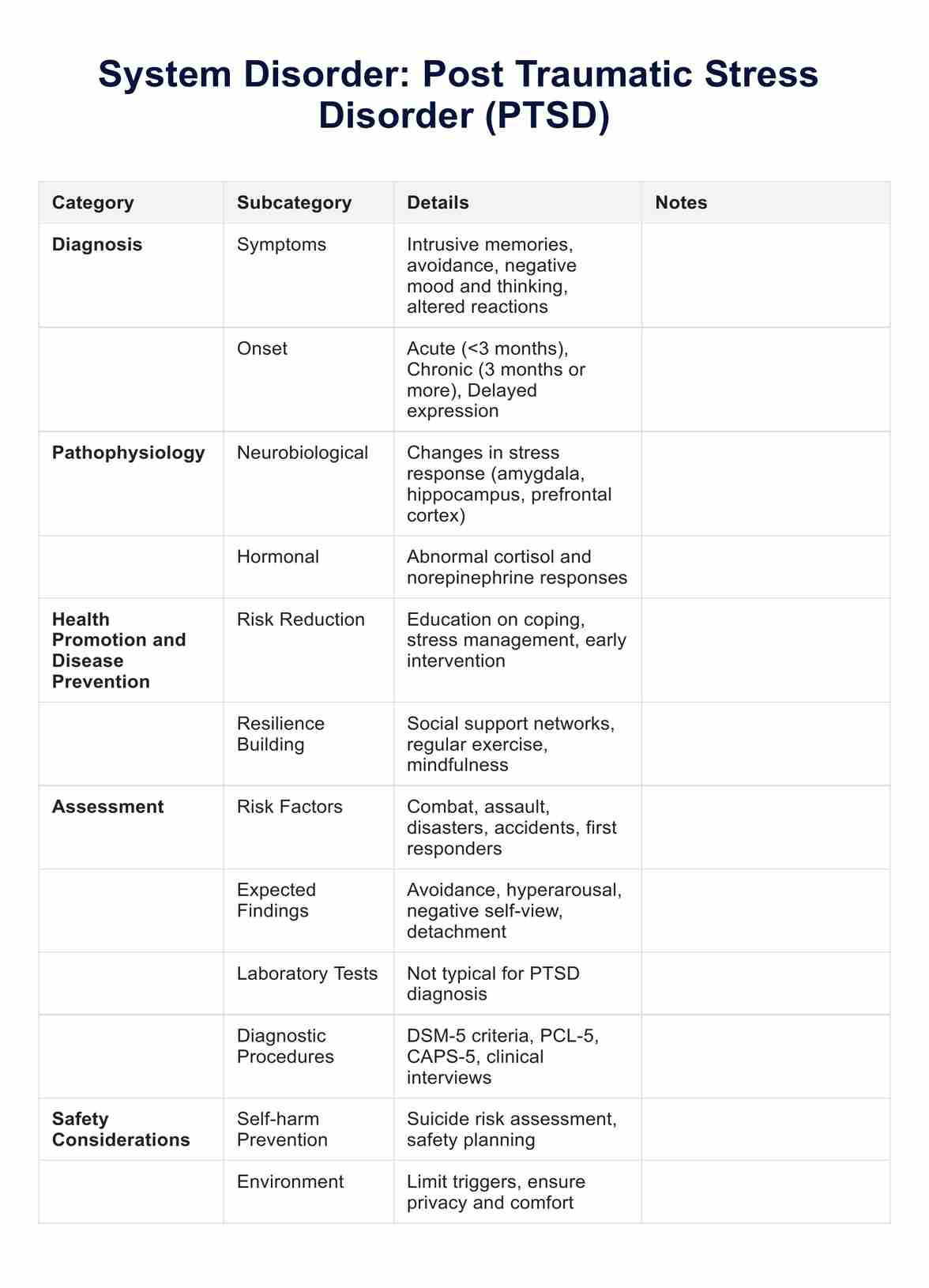The PTSD System Disorder Template is a structured tool designed for healthcare professionals. It guides the assessment, diagnosis, and treatment of Post-Traumatic Stress Disorder (PTSD). The template includes various sections covering symptoms, diagnosis criteria, treatment options, and patient care strategies.

PTSD System Disorder Template
Explore our comprehensive PTSD System Disorder Template, designed for mental health professionals to effectively assess and revise PTSD symptoms.
PTSD System Disorder Template Template
Commonly asked questions
This template is beneficial for psychiatrists, psychologists, counselors, nurses, and other healthcare providers involved in the management of PTSD. It's also a valuable educational resource for medical students and trainees.
The template standardizes the approach to diagnosing and treating PTSD, ensuring that all critical aspects of the disorder are considered. It aids in developing comprehensive treatment plans and facilitates communication among multidisciplinary teams.
EHR and practice management software
Get started for free
*No credit card required
Free
$0/usd
Unlimited clients
Telehealth
1GB of storage
Client portal text
Automated billing and online payments











